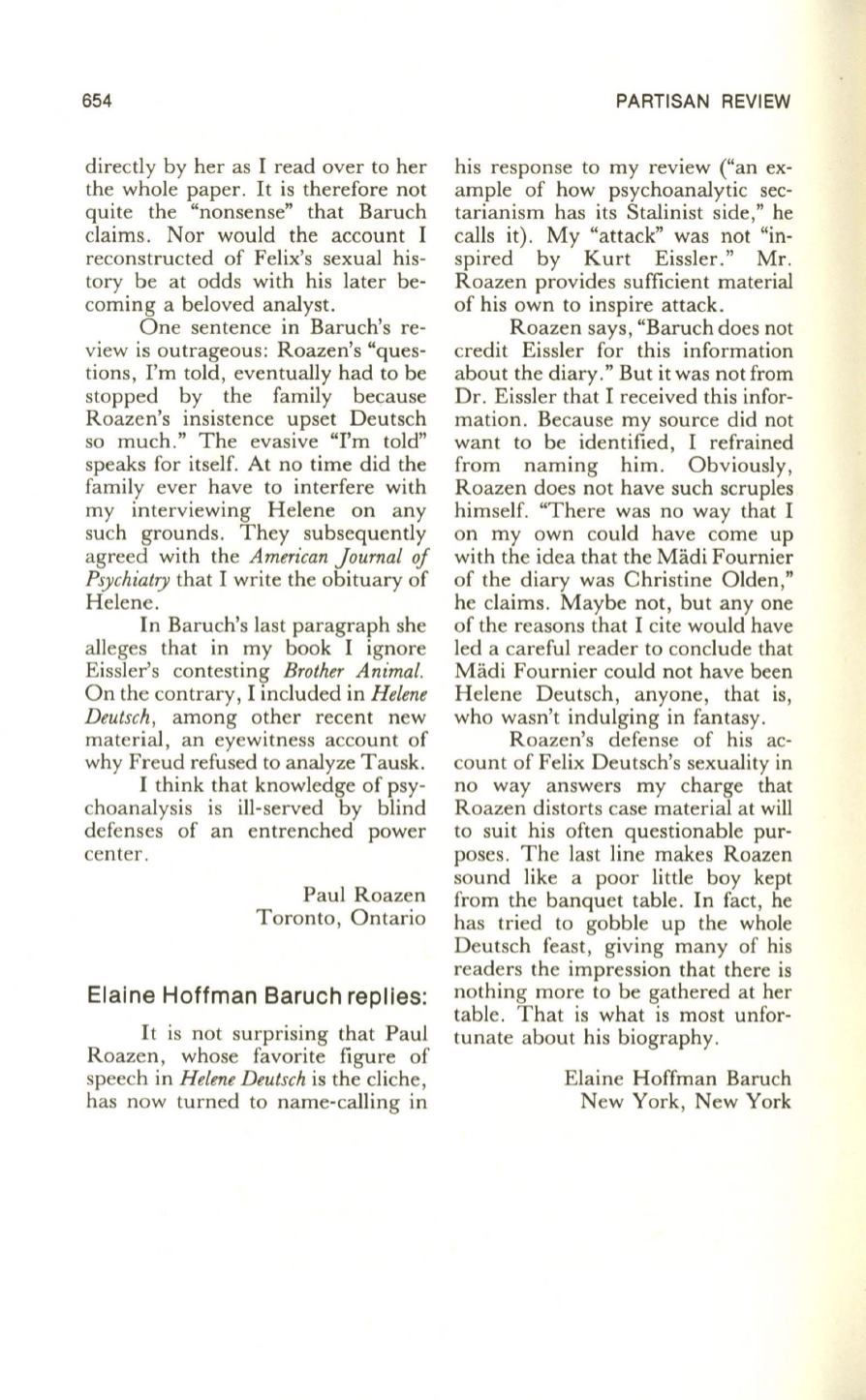
654
directly by her as I read over to her
the whole paper. It is therefore not
quite the "nonsense" that Baruch
claims. Nor would the account I
reconstructed of Felix's sexual his–
tory be at odds with his later be–
coming a beloved analyst.
One sentence in Baruch's re–
view is outrageous: Roazen's "ques–
tions, I'm told, eventually had to be
stopped by the family because
Roazen's insistence upset Deutsch
so much." The evasive "I'm told"
speaks for itself. At no time did the
family ever have to interfere with
my interviewing Helene on any
such grounds. They subsequently
agreed with the
American Journal of
Psychiatry
that I write the obituary of
Helene .
In Baruch's last paragraph she
alleges that in my book I ignore
Eissler's contesting
Brother Animal.
On the contrary, I included in
Helene
Deutsch,
among other recent new
material, an eyewitness account of
why Freud refused to analyze Tausk.
I think that knowledge of psy–
choanalysis is ill-served by blind
defenses of an entrenched power
center.
Paul Roazen
Toronto, Ontario
Elaine Hoffman Baruch replies:
It is not surprising that Paul
Roazen, whose favorite figure of
speech in
Helene Deutsch
is the cliche,
has now turned to name-calling in
PARTISAN REVIEW
his response to my review ("an ex–
ample of how psychoanalytic sec–
tarianism has its Stalinist side," he
calls it). My "attack" was not "in–
spired by Kurt Eissler." Mr.
Roazen provides sufficient material
of his own to inspire attack.
Roazen says, "Baruch does not
credit Eissler for this information
about the diary." But it was not from
Dr. Eissler that I received this infor–
mation. Because my source did not
want to be identified, I refrained
from naming him. Obviously,
Roazen does not have such scruples
himself. "There was no way that I
on my own could have come up
with the idea that the Miidi Fournier
of the diary was Christine Olden,"
he claims. Maybe not, but anyone
of the reasons that I cite would have
led a careful reader to conclude that
Miidi Fournier could not have been
Helene Deutsch, anyone, that is,
who wasn't indulging in fantasy.
Roazen's defense of his ac–
count of Felix Deutsch's sexuality in
no way answers my charge that
Roazen distorts case material at will
to suit his often questionable pur–
poses. The last line makes Roazen
sound like a poor little boy kept
from the banquet table. In fact, he
has tried to gobble up the whole
Deutsch feast, giving many of his
readers the impression that there is
nothing more to be gathered at her
table. That is what is most unfor–
tunate about his biography.
Elaine Hoffman Baruch
New York, New York


